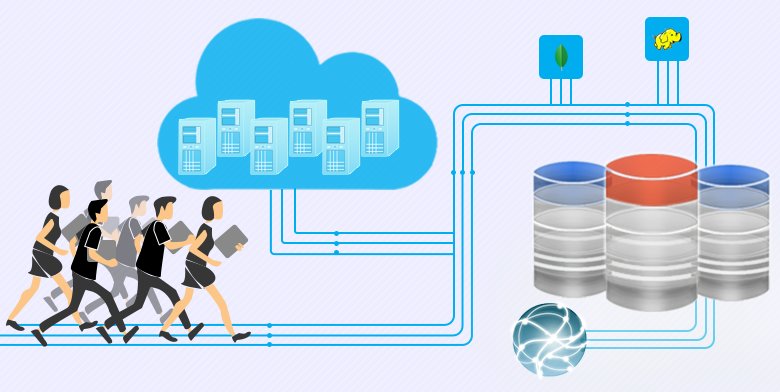Big Data is gradually taking over the business world and it means different things to different people. Data-driven decisions and applications create immense value by utilizing data sources to discover, present and operationalize important business insights. Every technology company on the planet now claims to have a solution for analyzing the mammoth amount of data businesses generate. But the real question is, do these companies really know how to use this data rather than going with the hype. Every company big or small aspires to improve their business by working on a big data project.
While the industry also agrees on the value of Big Data, there is no agreement on a standardized approach for how to begin and complete a Big Data project. When it comes to Big Data, the biggest implementation risk is that companies mistakenly focus on technology first instead of business objectives. A survey found that 55% of the big data projects fail or don’t get completed and many others fall short of their objectives. Pursuing a Big data Project for the sake of having one is a perfect recipe for burning money.
Thanks to all the marketing noise, the hype that a new technology buzzword creates often paints an over-glorified picture about what it can deliver. It is important to have realistic expectations of what can be the outcome from the project, how long it might take to complete and the amount of effort required.
While how you manage your Big Data project will vary depending on your specific use case and the nature of the data, there are 3 key steps to successfully implement a Big Data project:
In order to explore the organization’s expectations of Big Data project, here are a few questions which should be answered first:
• What is the project goal?
• Once this goal is met, how will it change the business?
• What are the obstacles to getting there?
• Who are the key stakeholders and what are their roles?
• What early outputs will tell you if the insights needed from the data are going to be extracted or not?
These questions will build a good foundation for the project. The more specific and connected the answers to these questions are, the more likely is the chance for the project to succeed. So make sure you spend enough time deliberating these questions before you embark on Big Data projects.
Big Data is all about asking the right questions, which requires business context, and then iterating on your project as you learn which data sources are valuable, and which questions yield real insights. You don’t have to know the end from the beginning, but you should have a clear view of what you hope to achieve with Big Data. In absence of that, there are incredibly high chances of you wasting money on Big Data initiatives.
